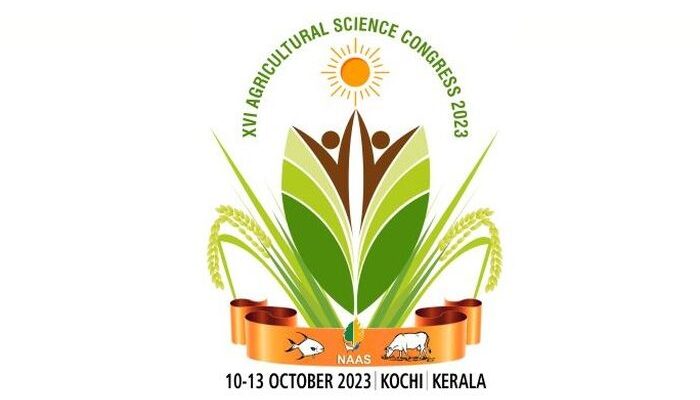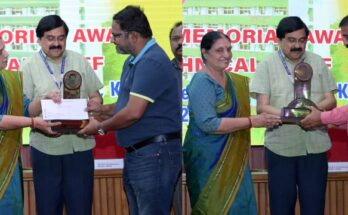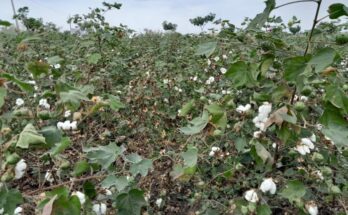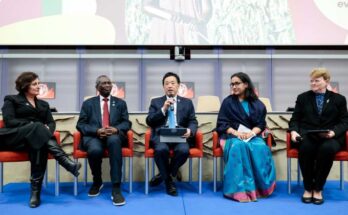Kochi, Kerala: Renowned agricultural economists, scientists, policymakers, academicians, farmers and entrepreneurs are set to converge in Kochi for four days, starting October 10, to attend the 16th Agricultural Science Congress (ASC). This landmark event promises to serve as a dynamic platform for discussions on transforming the agrifood system for achieving sustainable development goals (SDGs). Organised by the National Academy of Agricultural Sciences (NAAS), the Agricultural Science Congress is being held for the first time in Kerala. The event is hosted by the ICAR-Central Marine Fisheries Research Institute (CMFRI).
Union Fisheries Minister Parshottam Rupala will inaugurate the ASC at 3 pm on October 10 at Hotel Le Meridien. Dr Himanshu Pathak, Secretary to the Department of Agricultural Research and Education (DARE) and Director General of the Indian Council of Agricultural Research (ICAR) are expected to deliver the presidential address. P Prasad, Minister for Agriculture, Kerala; Hibi Eden MP; Dr Trilochan Mohapatra, Chairperson of Protection of Plant Varieties and Farmers’ Rights Authority; and KV Shaji, Chairman of NABARD would be the guests of honour. Prof. Panjab Singh, former President of NAAS is expected to deliver Dr AB Joshi Memorial Lecture.
You may also like to read: Corteva, ICRISAT, ICAR research project achieves milestone by resequencing pearl millet genomes
A line-up of renowned experts, including Dr. Madhur Gautam, lead economist of World Bank; Dr. Krishna Ella, CMD of Bharat Biotech; Dr Vijay Paul Sharma, Chairman of Commission for Agricultural Costs and Prices; Dr Prabhu Pingali, founding director of Tata Cornell Institute; Dr Rishi Sharma from FAO; and Dr Kadambot Siddique are expected to lead various sessions.
Panel discussion and symposium
With a comprehensive agenda, the 16th ASC will feature five plenary lectures by prominent figures in the field of agriculture and allied sectors. The Congress will also host three panel discussions on quality education for transforming agrifood systems, innovations in information dissemination and farming systems for enhancing nutrition and sustainability. In addition, four symposiums covering various topics, including coastal agriculture and livelihood, mainstreaming millets, and youth empowerment and gender equity have also been scheduled at the meet.
You may also like to read: Higher academic institutions agree on forming India’s first HEIs-led Agri-Consortium
The 16th ASC will delve into 10 themes, each addressing a vital aspect of agriculture and its impact on society. Topics such as malnutrition in India, nutritional security, climate action for sustainable agrifood systems, advances in genetics and genomics, livestock products, transformation of food systems, nutraceuticals, aquaculture systems, food processing, digital agriculture, AI-based systems, and agricultural policies will be covered. Invited lectures and technical sessions based on the themes will be held in six venues.
A key highlight of the 16th Agricultural Science Congress will be the farmer-scientist interface session, facilitating a direct exchange of knowledge and experiences between the farming community and leading researchers. Successful agriculturalists, including Padma awardees, from different corners of the country will share their experiences. Another standout session is the ‘Industry Interface’, which will explore collaborations and innovations that bridge the gap between agriculture and industry.
The Congress will witness the convergence of over 1500 delegates from India and abroad. An Agri Expo to be held on the side-line of the event will showcase innovative agricultural technologies of public and private sector research institutes, universities, agro-industries, extension agencies and NGOs.





